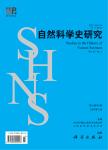Globalization, Scientific Lexicons, and the Future of Biology
Globalization, Scientific Lexicons, and the Future of Biology作者机构:MITUSA
出 版 物:《自然科学史研究》 (Studies in The History of Natural Sciences)
年 卷 期:2005年第24卷第B7期
页 面:23-30页
核心收录:
学科分类:0710[理学-生物学] 07[理学] 09[农学]
摘 要:1 Biology for the 21 st Century In a recent article in the New York Times (3/23/05), reporting on yet another upset to received views of the ways in which cells make use of their DNA, a prominent geneticist is quoted as remarking, “biologists have gotten used to the unexpected.’’ Indeed, they have, as indeed, they have had *** the last few years, our understanding of molecular and developmental genetics has mutated dramatically in response to ever more complex analyses of ever more abundant and more complex data. The arrival of a new kind of biology,‘Systems Biology’, has been heralded by the technical journals, by the popular media, and by the formation of new departments, institutes, and programs. Across the USA and much of the rest of the modern world, major efforts are now underway to revamp the educational curriculum of biology programs in order to better prepare future biologists for the challenges they are expected to *** of the requisite revisions are obvious: in recognition of the new role that computational and mathematical techniques are beginning to play in the life sciences, today’s biology students need substantial training in skills that have traditionally had no place in biology *** I suggest that new quantitative techniques are not all that are *** is required as well is a new theoretical, epistemological, and perhaps even a new linguistic framework (see Keller, 2005).



